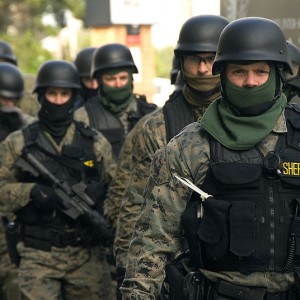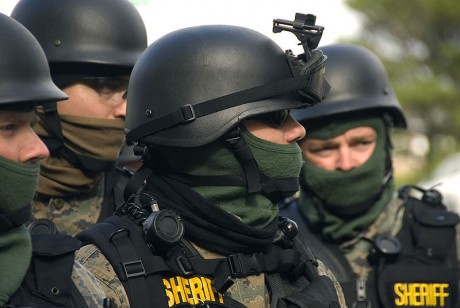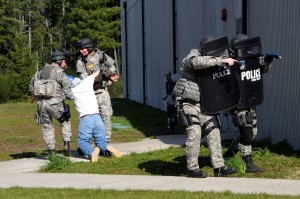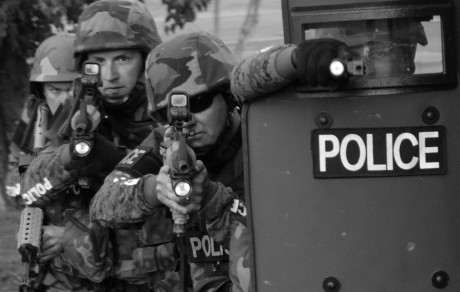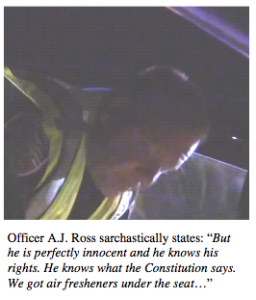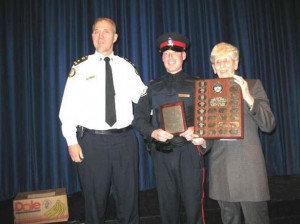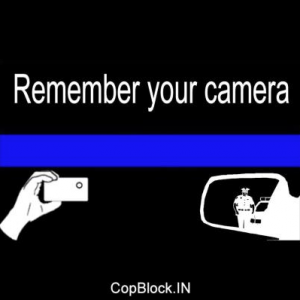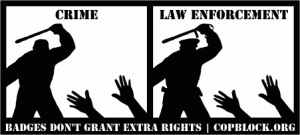OFF THE WIRE
BY: Luke Short
Source: isurfhopkins.com
HOPKINS COUNTY, KY—In recent political ads funded by incumbent Hopkins County Attorney candidate, Todd P’Pool, opposing candidate and Nortonville City Attorney, John C. Whitfield, is portrayed as the member of a potentially “dangerous” biker club called the Iron Order.
To find out more on these issues, iSurf News contacted both P’Pool and Whitfield to get their sides of the story.
“John Whitfield is the organizer of the Iron Order Motorcycle Club, LLC nationwide. It’s not just one small, local clubhouse,” said P’Pool. “You can look at the Kentucky Secretary of State website and you can look at organization number 0750057, and that will show you that he is the organizer of the Iron Order Motorcycle, LLC for the entire nation.”
After reviewing the specific portion of the KY State Secretary’s website P’Pool is referring to, which can be found at
https://app.sos.ky.gov/ftshow/%28S%28233zdf551tohxi55b4xcaq2z%29%29/default.aspx?path=ftsearch&id=0750057&ct=06&cs=99999
, iSurf News found that John C. Whitfield is listed alongside 4 other Organizers in the “Initial Officers at time of formation” category.
P’Pool went on to reference the Iron Order’s website as well, listing off several of the officers’ names—which include monikers like, “CGAR,” “QBALL,” “RAINMAN,” and more— and said that, “The ‘SHARK’ is our very own John Whitfield of Hopkins County.”
“So far, there’s no problem,” said P’Pool. “You’ve just got a guy who wants to have a nickname and ride around on a motorcycle. The problem comes in when you Google ‘Iron Order Jessup, Georgia,’ and you find out that their members have been arrested for unlawful acts of criminal street gangs; they were in a bar fight, shots were fired, members of the Iron Order have been arrested for criminal street gang activity. The problem arises when you Google ‘Iron Order Virginia Pagans,’ and you see where a member of the Pagan motorcycle gang was fatally shot by the Virginia State Police tactical team when the ATF were trying to execute a federal search warrant—he was a known meth dealer. The Iron Order attended the funeral and actually rode with the Pagans in honor of the fallen meth dealer who was shot and killed by ATF agents when they tried to execute a federal search warrant.”
“There’s a further problem when members of law enforcement in Hopkins County receive Officer Safety alerts, because the Outlaws have declared war against the Iron Order,” said P’Pool. “The Outlaws are on the FBI watch-list, the Pagans are on the FBI watch-list, and I have in my hands an Officer Safety alert that tells our local officers to be on the lookout because the Outlaws declared war on the Iron Order—and the ATF feels that this is a credible threat. This was issued back in December of ’09. The month before my opponent filed for County Attorney, the Outlaws declared war on the Iron Order. We received that intelligence from the Oklahoma Highway Patrol’s criminal intelligence analyst. I contacted the Oklahoma Highway Patrol and they did verify that they issued this Officer Safety alert. Why would our local officers receive an Officer’s Safety Alert here in Hopkins County? It’s because John Whitfield brought the Iron Order to downtown Madisonville, and that puts officers at risk, because of this kind of activity.”
iSurf News acquired a copy of the above mentioned Officer Safety alert, which states that it was issued by an Oklahoma Highway Patrol Criminal Intelligence Analyst, B. Diane Hogue, on December 18th, 2009. What follows is a direct transcription of the main body of information found in this particular alert.
“Subject: Officer Safety—Outlaw Motorcycle Gangs
Please disseminate to OHP law enforcement personnel..Officer Safety Issue.
The Outlaws have declared war against the Iron Order MC. The Outlaws and Bandidos have been helping each other the last year, and in this recent incident the Bandidos were with the Outlaws when this proclamation was made. The importance to this in Oklahoma is the Iron Order has several police officers that are members and this may spread to other motorcycle clubs that are law enforcement strong. Oklahoma has a large Bandido population in the southern part of the state and the Outlaws have been in OKC, Ardmore, as well as SE Oklahoma and Tulsa. In the last 24 hours there have been incidents involving those clubs. Further, the Hells Angels (whom we have only a few known members in Oklahoma) have shot and killed 3 officers in recent weeks throughout the US.”
In addition, the alert mentions that the ATF “feels that this is a credible threat.”
Though iSurf News has attempted to contact the OHP Headquarters to verify the accuracy of the alert and to find out any additional information with regards to Hopkins County, as of this report, the OHP has not responded to our inquiries.
P’Pool also mentioned that, “Last month, we had a stand-off here in Hopkins County with a boy who is not an official member of the Outlaws, but his father was an official member of the Outlaws, and he [the boy] was absolutely part of what’s called a ‘feeder gang’—the Double Pistons, I think—out of Clarksville, TN.”
“So all of this is connected,” said P’Pool. “It’s dangerous. I support responsible motorcycle ownership, I have no problem with people who ride motorcycles, but I do have a problem with gang colors, nicknames, and criminal activity. And I have a serious problem when an individual wants to be a prosecutor, to have access to sensitive government information, and he runs in these circles. That’s dangerous.”
“The local Iron Order chapter does have a meth dealer who was convicted and he is a member of the local club,” said P’Pool. “If you look in the HopNMad Chapter, you’ll see Mike ‘Lollipop’ Melton, who does have meth charges, was arrested for trafficking methamphetamine, and pled guilty to the lesser charge of possession of methamphetamine. He’s displayed throughout the website here at the HopNMad Chapter. And if you look at their photographs, you can see liquor bottles in there, too. That’s where they party. It’s where they party, and, quite frankly, if you’re consuming alcoholic beverages on a place of business, then you’re presumed to be selling alcohol, and you’re supposed to have a liquor-license. That’s in the ABC Law. So if they are serving alcohol in there, which I believe they are, they are in violation of the law.”
After speaking with P’Pool, iSurf News contacted Hopkins County Attorney candidate, John C. Whitfield, to obtain his response to the allegations mentioned above.
In regards to the Officer Safety alert and the Outlaw’s “declaration of war against the Iron Order,” Whitfield stated that, “It’s an absolute fabrication. What you’re talking about was a bogus alert from one of the outlaw clubs—I think it was The Outlaws themselves—that made its way to the ATF. It has no credibility at all; it’s bogus. In fact, one of the guys in our club is an ATF agent, and so we called him at Oklahoma and told him to check on this— and this has been a year ago—and he found it out to be non-credible. That’s the truth.”
In explaining what the Iron Order motorcycle club is all about, Whitfield stated that, “The Iron Order is the largest, law-abiding club in the country. It was started by a former secret-service agent in 2004. It’s based out of Louisville, but it’s all over the country now. More than half of our guys are military or law enforcement. We have doctors, a lawyer—I’m the only lawyer—we’ve got professionals, CPAs, and we have working ‘Joes’ too, that just have nothing else better to do than to ride bikes. But the goal of the club was, and is, to try to change the image of some of these outlaw motorcycle clubs. The Outlaws, Pagans, Hell’s Angels—they call them ‘one-percent’ clubs—and those are ‘bad guys.’ There are a lot of people that we have found that like to ride Harley’s, that enjoy riding Harley’s, and didn’t really have anywhere to go because it was the ‘one-percent’ clubs or nothing really. You had Christian motorcycle groups, which were great, but there was a pretty good niche for people wanting to do this kind of thing, so that’s how the club started; that’s how it evolved. I got involved with it a couple of years ago and I developed what’s called, ‘The Division of Legal Affairs,’ that deals with making sure that the club remains lawful and that all the legal aspects of it are taken care of.”
“We have what’s called the Hopkins County-Madisonville ‘HopNMad’ chapter of the Iron Order. It’s right down here on Franklin St. next to the courthouse,” said Whitfield. “It’s probably the most ‘white bread’ biker place you’ve ever seen. We’ve got a pool table in there, it’s clean, we’ve got a kitchen upstairs, and on Friday nights it is open and we have families come in and little kids. We had a Nintendo Wii Bowling Tournament during April last year for Big Brothers-Big Sisters. So we had all our guys down there playing Wii Bowling—I mean, that’s the kind of club this is. A couple of weekends ago, we went to the Taylor Patterson Poker Run, and we were the only bikers that showed up. We donated money for that. One of the guys from the HopNMad chapter is serving in Afghanistan right now, too. Most of our Board is made up of military guys as well. So this is the kind of club he [P’Pool] is kickin’ on.”
“I’m on the International Board of the Iron Order because I’m a lawyer and I can handle things that need to be handled,” said Whitfield of his involvement with the club. “We don’t permit felons in the club and we’re the largest law-abiding motorcycle club that wears a 3-piece patch in the country. I’m on the Board of Directors for the Iron Order—we have a president, we have regional directors, and if you get on the website you’ll see all of this—and all the guys on the website are military and one of them is a doctor. What I did here is, we had to organize the local HopNMad chapter, and so we needed to prepare corporation papers—they call them LLC papers because this is a Limited-Liability Corporation—so I drew them up for the HopNMad chapter incorporated here in Madisonville so that we had legal protection. It’s like any company, and we’re non-profit. That’s it.”
In response to P’Pool’s statement that the Iron Order’s presence in Madisonville could pose a threat to our local law enforcement, Whitfield stated that, “Let me tell you something. I’m a grandfather, OK. I take my 4 year-old grandchild down to the clubhouse all the time. I mean, it’s like ‘Happy Days.’ It’s not anything like what you would consider a ‘biker bar.’ There are kids in there all the time. To say it’s a threat is absolutely incredible. You ask any of the police—we have an unbelievable relationship to the police. We’re right next door to the fire department, we’re right next door to the police department, and we get along with them fine. We’ve no issues at all. In fact, as I told you, most of our guys are law enforcement or military throughout the country.”
Replying to the criminal incidents and questionable behavior mentioned by P’Pool, both of which he stated involved members of the Iron Order (occurring in both Virginia and Georgia), Whitfield stated that, “There was a guy that was in the Pagans. He was shot and killed, and that was in Virginia. I think it was his uncle that was friends with one guy in our club, who happened to be the doctor I was telling you about, who is also an ornate minister out of Louisville. The uncle and my guy—the doctor—were best friends. So the Iron Order guy drove to Virginia to attend the funeral of this fellow. That’s it. He went to a funeral of his best friend’s nephew.”
“Let me tell you about what happened in Jessup, Georgia,” said Whitfield. “I went down there when this happened to make sure I knew what was going on. 5 or 6 of our guys were in a bar, and there was another club that they call a ‘one-percent’ club—these national ‘one-percent’ clubs, like the Pagans, Outlaws, and the Bandidos, all have these ‘support’ clubs that are associated with them—and one of these associated clubs jumped our guys in a bar and beat 2 of our guys down. They hurt our guys pretty bad. That’s what he’s [P’Pool’s] talking about there. They just arrested everybody. They’re getting ready to dismiss the charges against my guys, because they didn’t do anything wrong. I went down there and saw it and talked to the prosecutors and the lead investigator.”
In regards to what could have prompted the altercation, Whitfield stated that, “The Iron Order is not liked by the ‘one-percent’ world. The Iron Order is not liked by these outlaw motorcycle clubs because we’re law-abiding and we let everybody know we’re law abiding. We don’t break the law, we’re getting bigger, and it’s a threat to some of these outlaw clubs. We’re the anti-outlaw motorcycle club. We provide an outlet for guys that want to ride, have fun, and wear a 3-piece patch. When you wear a 3-piece patch, it’s kind of a big deal in the motorcycle world, and these other outlaw clubs say that you have to have permission from them to wear a 3-piece patch, but we don’t; we don’t ask permission from anybody, we just do it. And because we’re law-abiding, and we’re full of cops, a lot of the outlaw clubs don’t like us—they just hate ‘cop clubs’ and that’s what we are. So, as a result, every now and then, you’re going to have little issues, and that was one of them in Jessup. This had nothing to do with us here in Madisonville.”
Whitfield also rebuked allegations that a felon, Mike “Lollipop” Melton, was a member of the Iron Order—who P’Pool also stated had been convicted of methamphetamine possession.
“He’s not in the Iron Order,” said Whitfield. “We call him ‘Lollipop’—his name is Mike Melton, he’s a great guy, and he works at J-Lock. He had an issue with the law in the past and he pled guilty to a felony, but he’s not a member of the Iron Order. We know him. I know who he is—he’s a friend of mine—but he’s not in the Iron Order, because he can’t get in. We don’t like drug dealers, and we don’t let felons in. We don’t let them in—period.”
On the topic of alcohol consumption within the HopNMad Chapter’s headquarters in Madisonville, which P’Pool said he believed was occurring without the acquirement of a liquor-license, Whitfield said that, “I don’t have any kind of clue what he’s talking about. Do we serve alcohol without a liquor-license? No, sir.”
In regards to the nickname, “Shark,” Whitfield stated that, “I’m kind of proud of that actually. I tell you what, it’s strange, because every now and then, these guys will call the office and say, ‘Is Shark there?’, and it took the girls a while to figure out who ‘Shark’ was. Now they give me grief about it. It’s on my bike, too.”
“To say that we are a threat to the community is an absolute joke,” said Whitfield. “Have you ever heard of a guy named Bob Saget? Bob Saget was the dad on ‘Full House’ and he was the host on ‘America’s Funniest Home Videos.’ Well, he’s got a new reality show coming out called, ‘Strange Days,’ that will be on A&E, and the whole premise is to put Bob in a funny situation to see how he reacts. Well, they ended up needing a motorcycle club, so they contacted us. So we filmed in February, leaving from Louisville and going all the way to Bike Week in Daytona—a whole week with Bob Saget—and that episode is going to be aired December 1st on A&E. It’s going to have me in it, the president of our local chapter, Ronnie Hayes, and I’ve seen the take and it’s really funny. It’s just about how goofy we are. I mean, we’re going to be on a national TV show on December 1st with Bog Saget—the dad on ‘Full House’ and probably one of the biggest nerds that ever lived. So if that’s going to happen, you tell me how in the world we’re going to be a threat to anybody. They chose us. These producers weren’t going to go to a ‘one-percent’ club, but they went to us because we’re a law-abiding military-cop club. In fact, we made Bob an honorary member. So Bob is an honorary member of the Iron Order.”
“We’re not anything close to what P’Pool tries to make us out to be,” said Whitfield. “It’s a desperate move.”
When, and if, more information arises in regards to this matter, iSurf News will bring it to you as soon as possible.
Luke Short
iSurf News
BY: Luke Short
Source: isurfhopkins.com
HOPKINS COUNTY, KY—In recent political ads funded by incumbent Hopkins County Attorney candidate, Todd P’Pool, opposing candidate and Nortonville City Attorney, John C. Whitfield, is portrayed as the member of a potentially “dangerous” biker club called the Iron Order.
To find out more on these issues, iSurf News contacted both P’Pool and Whitfield to get their sides of the story.
“John Whitfield is the organizer of the Iron Order Motorcycle Club, LLC nationwide. It’s not just one small, local clubhouse,” said P’Pool. “You can look at the Kentucky Secretary of State website and you can look at organization number 0750057, and that will show you that he is the organizer of the Iron Order Motorcycle, LLC for the entire nation.”
After reviewing the specific portion of the KY State Secretary’s website P’Pool is referring to, which can be found at
https://app.sos.ky.gov/ftshow/%28S%28233zdf551tohxi55b4xcaq2z%29%29/default.aspx?path=ftsearch&id=0750057&ct=06&cs=99999
, iSurf News found that John C. Whitfield is listed alongside 4 other Organizers in the “Initial Officers at time of formation” category.
P’Pool went on to reference the Iron Order’s website as well, listing off several of the officers’ names—which include monikers like, “CGAR,” “QBALL,” “RAINMAN,” and more— and said that, “The ‘SHARK’ is our very own John Whitfield of Hopkins County.”
“So far, there’s no problem,” said P’Pool. “You’ve just got a guy who wants to have a nickname and ride around on a motorcycle. The problem comes in when you Google ‘Iron Order Jessup, Georgia,’ and you find out that their members have been arrested for unlawful acts of criminal street gangs; they were in a bar fight, shots were fired, members of the Iron Order have been arrested for criminal street gang activity. The problem arises when you Google ‘Iron Order Virginia Pagans,’ and you see where a member of the Pagan motorcycle gang was fatally shot by the Virginia State Police tactical team when the ATF were trying to execute a federal search warrant—he was a known meth dealer. The Iron Order attended the funeral and actually rode with the Pagans in honor of the fallen meth dealer who was shot and killed by ATF agents when they tried to execute a federal search warrant.”
“There’s a further problem when members of law enforcement in Hopkins County receive Officer Safety alerts, because the Outlaws have declared war against the Iron Order,” said P’Pool. “The Outlaws are on the FBI watch-list, the Pagans are on the FBI watch-list, and I have in my hands an Officer Safety alert that tells our local officers to be on the lookout because the Outlaws declared war on the Iron Order—and the ATF feels that this is a credible threat. This was issued back in December of ’09. The month before my opponent filed for County Attorney, the Outlaws declared war on the Iron Order. We received that intelligence from the Oklahoma Highway Patrol’s criminal intelligence analyst. I contacted the Oklahoma Highway Patrol and they did verify that they issued this Officer Safety alert. Why would our local officers receive an Officer’s Safety Alert here in Hopkins County? It’s because John Whitfield brought the Iron Order to downtown Madisonville, and that puts officers at risk, because of this kind of activity.”
iSurf News acquired a copy of the above mentioned Officer Safety alert, which states that it was issued by an Oklahoma Highway Patrol Criminal Intelligence Analyst, B. Diane Hogue, on December 18th, 2009. What follows is a direct transcription of the main body of information found in this particular alert.
“Subject: Officer Safety—Outlaw Motorcycle Gangs
Please disseminate to OHP law enforcement personnel..Officer Safety Issue.
The Outlaws have declared war against the Iron Order MC. The Outlaws and Bandidos have been helping each other the last year, and in this recent incident the Bandidos were with the Outlaws when this proclamation was made. The importance to this in Oklahoma is the Iron Order has several police officers that are members and this may spread to other motorcycle clubs that are law enforcement strong. Oklahoma has a large Bandido population in the southern part of the state and the Outlaws have been in OKC, Ardmore, as well as SE Oklahoma and Tulsa. In the last 24 hours there have been incidents involving those clubs. Further, the Hells Angels (whom we have only a few known members in Oklahoma) have shot and killed 3 officers in recent weeks throughout the US.”
In addition, the alert mentions that the ATF “feels that this is a credible threat.”
Though iSurf News has attempted to contact the OHP Headquarters to verify the accuracy of the alert and to find out any additional information with regards to Hopkins County, as of this report, the OHP has not responded to our inquiries.
P’Pool also mentioned that, “Last month, we had a stand-off here in Hopkins County with a boy who is not an official member of the Outlaws, but his father was an official member of the Outlaws, and he [the boy] was absolutely part of what’s called a ‘feeder gang’—the Double Pistons, I think—out of Clarksville, TN.”
“So all of this is connected,” said P’Pool. “It’s dangerous. I support responsible motorcycle ownership, I have no problem with people who ride motorcycles, but I do have a problem with gang colors, nicknames, and criminal activity. And I have a serious problem when an individual wants to be a prosecutor, to have access to sensitive government information, and he runs in these circles. That’s dangerous.”
“The local Iron Order chapter does have a meth dealer who was convicted and he is a member of the local club,” said P’Pool. “If you look in the HopNMad Chapter, you’ll see Mike ‘Lollipop’ Melton, who does have meth charges, was arrested for trafficking methamphetamine, and pled guilty to the lesser charge of possession of methamphetamine. He’s displayed throughout the website here at the HopNMad Chapter. And if you look at their photographs, you can see liquor bottles in there, too. That’s where they party. It’s where they party, and, quite frankly, if you’re consuming alcoholic beverages on a place of business, then you’re presumed to be selling alcohol, and you’re supposed to have a liquor-license. That’s in the ABC Law. So if they are serving alcohol in there, which I believe they are, they are in violation of the law.”
After speaking with P’Pool, iSurf News contacted Hopkins County Attorney candidate, John C. Whitfield, to obtain his response to the allegations mentioned above.
In regards to the Officer Safety alert and the Outlaw’s “declaration of war against the Iron Order,” Whitfield stated that, “It’s an absolute fabrication. What you’re talking about was a bogus alert from one of the outlaw clubs—I think it was The Outlaws themselves—that made its way to the ATF. It has no credibility at all; it’s bogus. In fact, one of the guys in our club is an ATF agent, and so we called him at Oklahoma and told him to check on this— and this has been a year ago—and he found it out to be non-credible. That’s the truth.”
In explaining what the Iron Order motorcycle club is all about, Whitfield stated that, “The Iron Order is the largest, law-abiding club in the country. It was started by a former secret-service agent in 2004. It’s based out of Louisville, but it’s all over the country now. More than half of our guys are military or law enforcement. We have doctors, a lawyer—I’m the only lawyer—we’ve got professionals, CPAs, and we have working ‘Joes’ too, that just have nothing else better to do than to ride bikes. But the goal of the club was, and is, to try to change the image of some of these outlaw motorcycle clubs. The Outlaws, Pagans, Hell’s Angels—they call them ‘one-percent’ clubs—and those are ‘bad guys.’ There are a lot of people that we have found that like to ride Harley’s, that enjoy riding Harley’s, and didn’t really have anywhere to go because it was the ‘one-percent’ clubs or nothing really. You had Christian motorcycle groups, which were great, but there was a pretty good niche for people wanting to do this kind of thing, so that’s how the club started; that’s how it evolved. I got involved with it a couple of years ago and I developed what’s called, ‘The Division of Legal Affairs,’ that deals with making sure that the club remains lawful and that all the legal aspects of it are taken care of.”
“We have what’s called the Hopkins County-Madisonville ‘HopNMad’ chapter of the Iron Order. It’s right down here on Franklin St. next to the courthouse,” said Whitfield. “It’s probably the most ‘white bread’ biker place you’ve ever seen. We’ve got a pool table in there, it’s clean, we’ve got a kitchen upstairs, and on Friday nights it is open and we have families come in and little kids. We had a Nintendo Wii Bowling Tournament during April last year for Big Brothers-Big Sisters. So we had all our guys down there playing Wii Bowling—I mean, that’s the kind of club this is. A couple of weekends ago, we went to the Taylor Patterson Poker Run, and we were the only bikers that showed up. We donated money for that. One of the guys from the HopNMad chapter is serving in Afghanistan right now, too. Most of our Board is made up of military guys as well. So this is the kind of club he [P’Pool] is kickin’ on.”
“I’m on the International Board of the Iron Order because I’m a lawyer and I can handle things that need to be handled,” said Whitfield of his involvement with the club. “We don’t permit felons in the club and we’re the largest law-abiding motorcycle club that wears a 3-piece patch in the country. I’m on the Board of Directors for the Iron Order—we have a president, we have regional directors, and if you get on the website you’ll see all of this—and all the guys on the website are military and one of them is a doctor. What I did here is, we had to organize the local HopNMad chapter, and so we needed to prepare corporation papers—they call them LLC papers because this is a Limited-Liability Corporation—so I drew them up for the HopNMad chapter incorporated here in Madisonville so that we had legal protection. It’s like any company, and we’re non-profit. That’s it.”
In response to P’Pool’s statement that the Iron Order’s presence in Madisonville could pose a threat to our local law enforcement, Whitfield stated that, “Let me tell you something. I’m a grandfather, OK. I take my 4 year-old grandchild down to the clubhouse all the time. I mean, it’s like ‘Happy Days.’ It’s not anything like what you would consider a ‘biker bar.’ There are kids in there all the time. To say it’s a threat is absolutely incredible. You ask any of the police—we have an unbelievable relationship to the police. We’re right next door to the fire department, we’re right next door to the police department, and we get along with them fine. We’ve no issues at all. In fact, as I told you, most of our guys are law enforcement or military throughout the country.”
Replying to the criminal incidents and questionable behavior mentioned by P’Pool, both of which he stated involved members of the Iron Order (occurring in both Virginia and Georgia), Whitfield stated that, “There was a guy that was in the Pagans. He was shot and killed, and that was in Virginia. I think it was his uncle that was friends with one guy in our club, who happened to be the doctor I was telling you about, who is also an ornate minister out of Louisville. The uncle and my guy—the doctor—were best friends. So the Iron Order guy drove to Virginia to attend the funeral of this fellow. That’s it. He went to a funeral of his best friend’s nephew.”
“Let me tell you about what happened in Jessup, Georgia,” said Whitfield. “I went down there when this happened to make sure I knew what was going on. 5 or 6 of our guys were in a bar, and there was another club that they call a ‘one-percent’ club—these national ‘one-percent’ clubs, like the Pagans, Outlaws, and the Bandidos, all have these ‘support’ clubs that are associated with them—and one of these associated clubs jumped our guys in a bar and beat 2 of our guys down. They hurt our guys pretty bad. That’s what he’s [P’Pool’s] talking about there. They just arrested everybody. They’re getting ready to dismiss the charges against my guys, because they didn’t do anything wrong. I went down there and saw it and talked to the prosecutors and the lead investigator.”
In regards to what could have prompted the altercation, Whitfield stated that, “The Iron Order is not liked by the ‘one-percent’ world. The Iron Order is not liked by these outlaw motorcycle clubs because we’re law-abiding and we let everybody know we’re law abiding. We don’t break the law, we’re getting bigger, and it’s a threat to some of these outlaw clubs. We’re the anti-outlaw motorcycle club. We provide an outlet for guys that want to ride, have fun, and wear a 3-piece patch. When you wear a 3-piece patch, it’s kind of a big deal in the motorcycle world, and these other outlaw clubs say that you have to have permission from them to wear a 3-piece patch, but we don’t; we don’t ask permission from anybody, we just do it. And because we’re law-abiding, and we’re full of cops, a lot of the outlaw clubs don’t like us—they just hate ‘cop clubs’ and that’s what we are. So, as a result, every now and then, you’re going to have little issues, and that was one of them in Jessup. This had nothing to do with us here in Madisonville.”
Whitfield also rebuked allegations that a felon, Mike “Lollipop” Melton, was a member of the Iron Order—who P’Pool also stated had been convicted of methamphetamine possession.
“He’s not in the Iron Order,” said Whitfield. “We call him ‘Lollipop’—his name is Mike Melton, he’s a great guy, and he works at J-Lock. He had an issue with the law in the past and he pled guilty to a felony, but he’s not a member of the Iron Order. We know him. I know who he is—he’s a friend of mine—but he’s not in the Iron Order, because he can’t get in. We don’t like drug dealers, and we don’t let felons in. We don’t let them in—period.”
On the topic of alcohol consumption within the HopNMad Chapter’s headquarters in Madisonville, which P’Pool said he believed was occurring without the acquirement of a liquor-license, Whitfield said that, “I don’t have any kind of clue what he’s talking about. Do we serve alcohol without a liquor-license? No, sir.”
In regards to the nickname, “Shark,” Whitfield stated that, “I’m kind of proud of that actually. I tell you what, it’s strange, because every now and then, these guys will call the office and say, ‘Is Shark there?’, and it took the girls a while to figure out who ‘Shark’ was. Now they give me grief about it. It’s on my bike, too.”
“To say that we are a threat to the community is an absolute joke,” said Whitfield. “Have you ever heard of a guy named Bob Saget? Bob Saget was the dad on ‘Full House’ and he was the host on ‘America’s Funniest Home Videos.’ Well, he’s got a new reality show coming out called, ‘Strange Days,’ that will be on A&E, and the whole premise is to put Bob in a funny situation to see how he reacts. Well, they ended up needing a motorcycle club, so they contacted us. So we filmed in February, leaving from Louisville and going all the way to Bike Week in Daytona—a whole week with Bob Saget—and that episode is going to be aired December 1st on A&E. It’s going to have me in it, the president of our local chapter, Ronnie Hayes, and I’ve seen the take and it’s really funny. It’s just about how goofy we are. I mean, we’re going to be on a national TV show on December 1st with Bog Saget—the dad on ‘Full House’ and probably one of the biggest nerds that ever lived. So if that’s going to happen, you tell me how in the world we’re going to be a threat to anybody. They chose us. These producers weren’t going to go to a ‘one-percent’ club, but they went to us because we’re a law-abiding military-cop club. In fact, we made Bob an honorary member. So Bob is an honorary member of the Iron Order.”
“We’re not anything close to what P’Pool tries to make us out to be,” said Whitfield. “It’s a desperate move.”
When, and if, more information arises in regards to this matter, iSurf News will bring it to you as soon as possible.
Luke Short
iSurf News



 When working with nude photography – no matter how much time you spend getting the pictures to look nice, and hiding away everything you would prefer not to show – the models will be moving, and everything will show, to put it that way. What you want to do is to find a reasonably secluded spot to take the pictures. A photo studio is ideal, but outdoors or on location somewhere makes for great pictures.
When working with nude photography – no matter how much time you spend getting the pictures to look nice, and hiding away everything you would prefer not to show – the models will be moving, and everything will show, to put it that way. What you want to do is to find a reasonably secluded spot to take the pictures. A photo studio is ideal, but outdoors or on location somewhere makes for great pictures. Try new stuff. Combine strange things. Have you seen the picture of Atlas? Recreate this with a big beach ball, or a TV receiver set or something. Use candles as light sources. Take black and white or colour shots (whatever you normally don’t). Use an overhead projector or a slide projector to project shapes onto your model.
Try new stuff. Combine strange things. Have you seen the picture of Atlas? Recreate this with a big beach ball, or a TV receiver set or something. Use candles as light sources. Take black and white or colour shots (whatever you normally don’t). Use an overhead projector or a slide projector to project shapes onto your model.




















